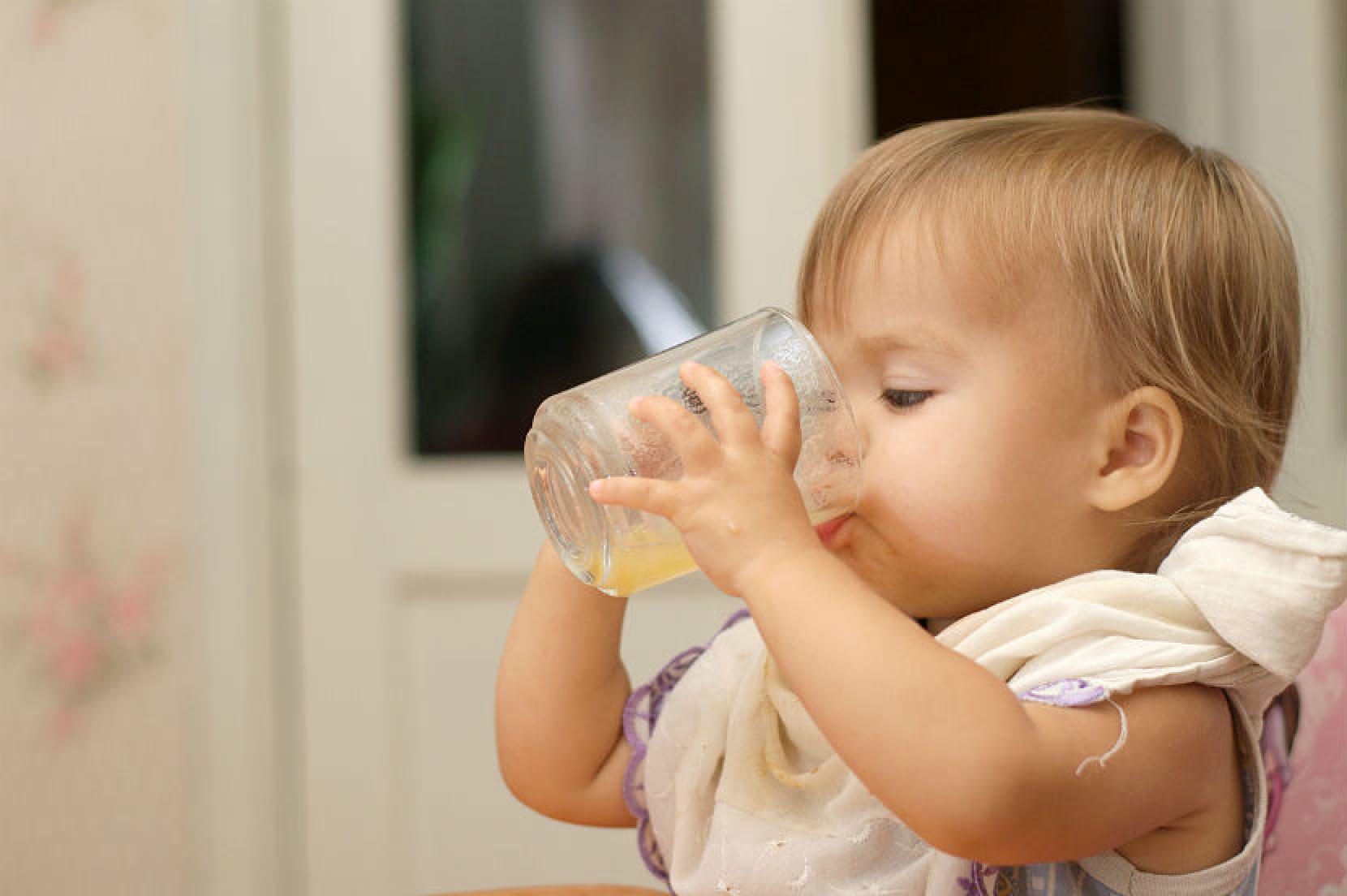What to feed babies and older children is one of the most common topics parents ask pediatricians. We all want to do what’s best for our children, but we also want a night of reasonably uninterrupted sleep, a happy child and a chance to enjoy mealtime with our family.
When it comes to the first year of life, the answer is simple. Babies need breast milk or an FDA-approved infant formula in the first year of life. There is no need for fruit juices. The same goes for alternative beverages such as goat’s milk or almond milk during that first year.
That is why the American Academy of Pediatrics recently released a position paper – which I helped craft – making clear the lack of any nutritional value of fruit juice or alternative beverages during the first year of life.
For some, fruit juice provides something different for the baby or acts as a substitute for real fruit. But even 100 percent fruit juice is inferior to actual fruit for the nutrition of children, and babies can have significant dental problems from juice bottles or sippy cups left in their mouths because of the added sugar, and all that sugar may set them up for being overweight in later years.
For toddlers, a small amount of juice is acceptable but certainly not needed for a healthy diet. Rather, the focus should be on water and milk. Kids need fruit, not fruit juice, as an important source of nutrients including vitamins and fiber as they grow.
The goal of these guidelines is to help families make good choices for healthy food products and to help policymakers make these choices affordable and available to all families.
But it’s not just babies and toddlers who should avoid certain drinks. There are countless drinks in the marketplace targeted at older children. As pediatricians, we do not ever recommend energy drinks for children or adolescents and have made this clear in our public statements.
Energy drinks may provide an awake feeling, but they do not provide a solution to tired, stressed or overworked children. Energy drinks can also lead to more severe problems. For example, recently a teenager in South Carolina died after drinking a high amount of caffeine. He had an energy drink along with other caffeinated beverages over a short period. This is not the first time this has happened either.
The problem with energy drinks is that the source of energy is caffeine. Caffeine does not actually provide energy in the form of calories but is a strong stimulant to the heart.
Although the amounts of caffeine in a couple of cups of coffee in a day are easily tolerated by adults and are completely safe, there is little scientific evidence about what a safe amount is for children. Sure, a small amount of coffee is probably safe, but energy drinks can each provide much more caffeine and reach a toxic level. Especially when energy drinks are combined with other caffeinated beverages. The effect can be fatal due to heart rhythm changes.
It is easy to dismiss these types of dietary guidance as part of the “nanny state.” But food choices affect our children’s growth, their long-term risks of disease and even their risk of sudden death.
We need to pay attention to science in guiding what we give our families. We can start by avoiding fruit juice completely in the first year of life and limiting it thereafter. We can avoid buying energy drinks or sugar-containing soft drinks for our kids and encouraging others to do the same.
Meanwhile, we need public policy for continued support for programs to make fresh fruits and vegetables available and affordable for all families. We should advocate at our schools for healthy food choices. Public feeding programs such as the school lunch program can continue to allow but not encourage the drinking of fruit juice but should limit it to small amounts while actively promoting whole fruit intakes. Our children will be better for it.
Dr. Steven Abrams is a professor of pediatrics and the inaugural chair of the Department of Pediatrics at the Dell Medical School at The University of Texas at Austin.
A version of this op-ed appeared in the East Bay Times and the Waco Tribune Herald.
To view more op-eds from Texas Perspectives, click here.
Like us on Facebook.




